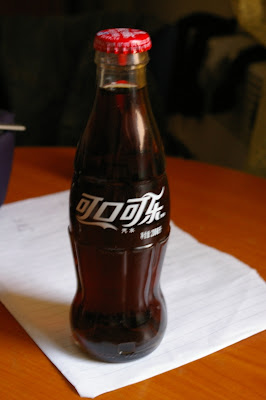So I and some other teachers from the college went to Beijing this past weekend. In a word the trip was "excellent". We had great food, great drinks, didn't have to dodge spit, hell we even broke into the Olympic contruction site "accidentally".
The crazy part was coming back to Zhengzhou, because when you are here you forget what it is like "out there". In the real world, where it is clean and garbage isn't thrown willy nilly into the street. It was saddening to come back, yet not 3 days later I was riding my bike to the supermarket and saw a little concert on the side of the road and felt happy that I am experiencing this lifestyle in this part of the world, because how many people will never do this?
So I decided to reup my contract and sign up for another six months, if only because they will pay for me to come back, making like $500 a month makes it difficult to be a jetsetter. At first, I was scared to do this but now I am excited because I know that if I can live here I can live anywhere.

